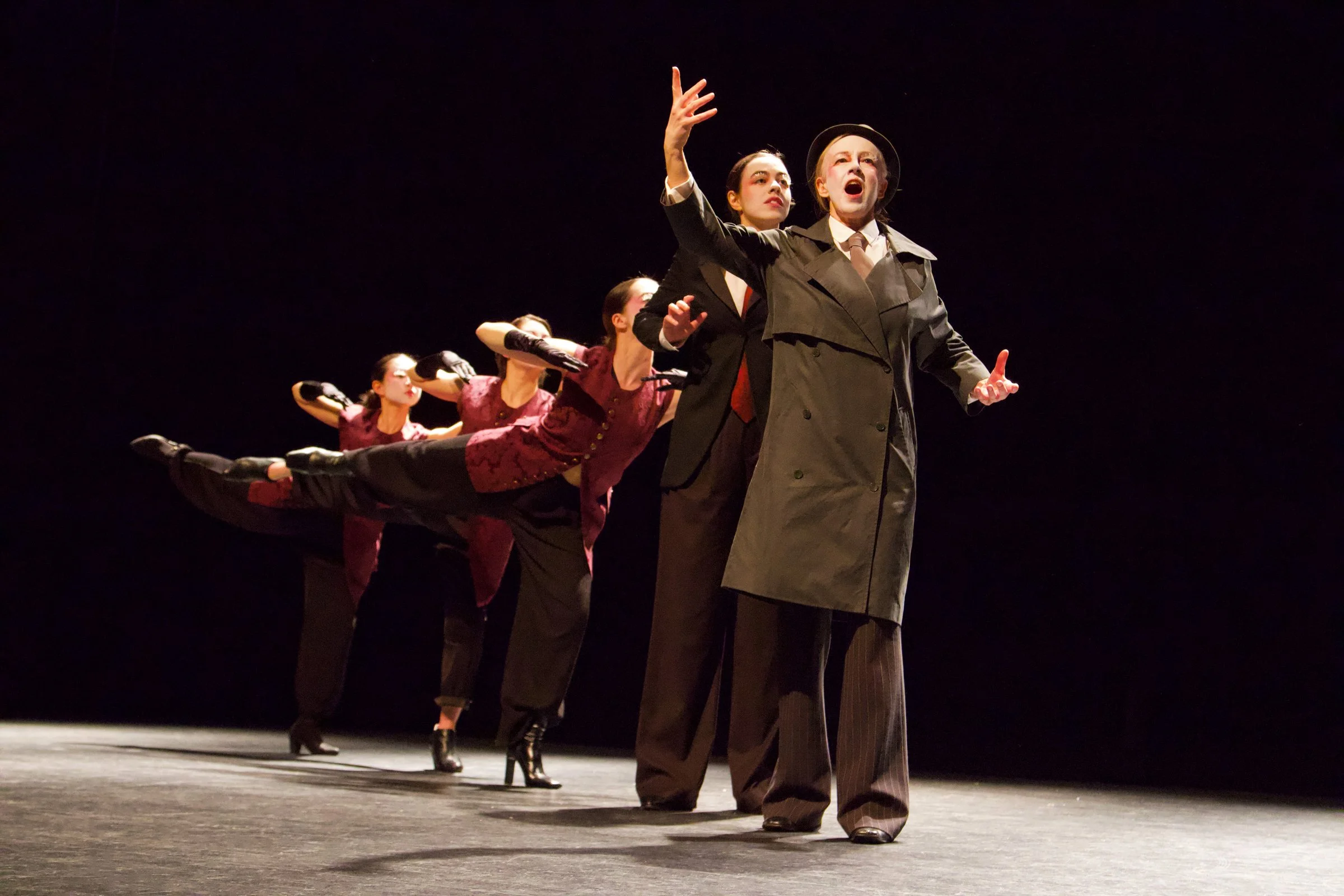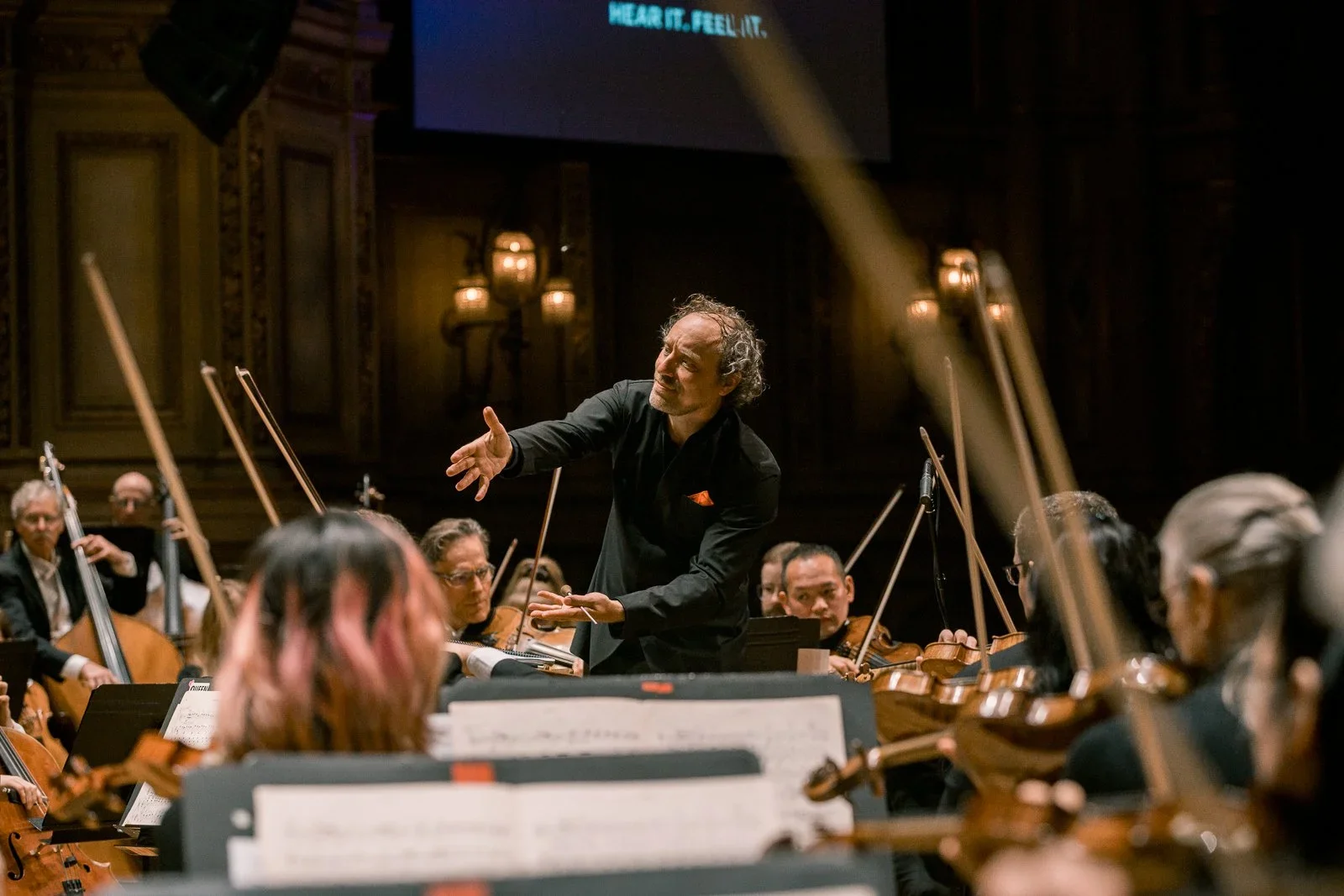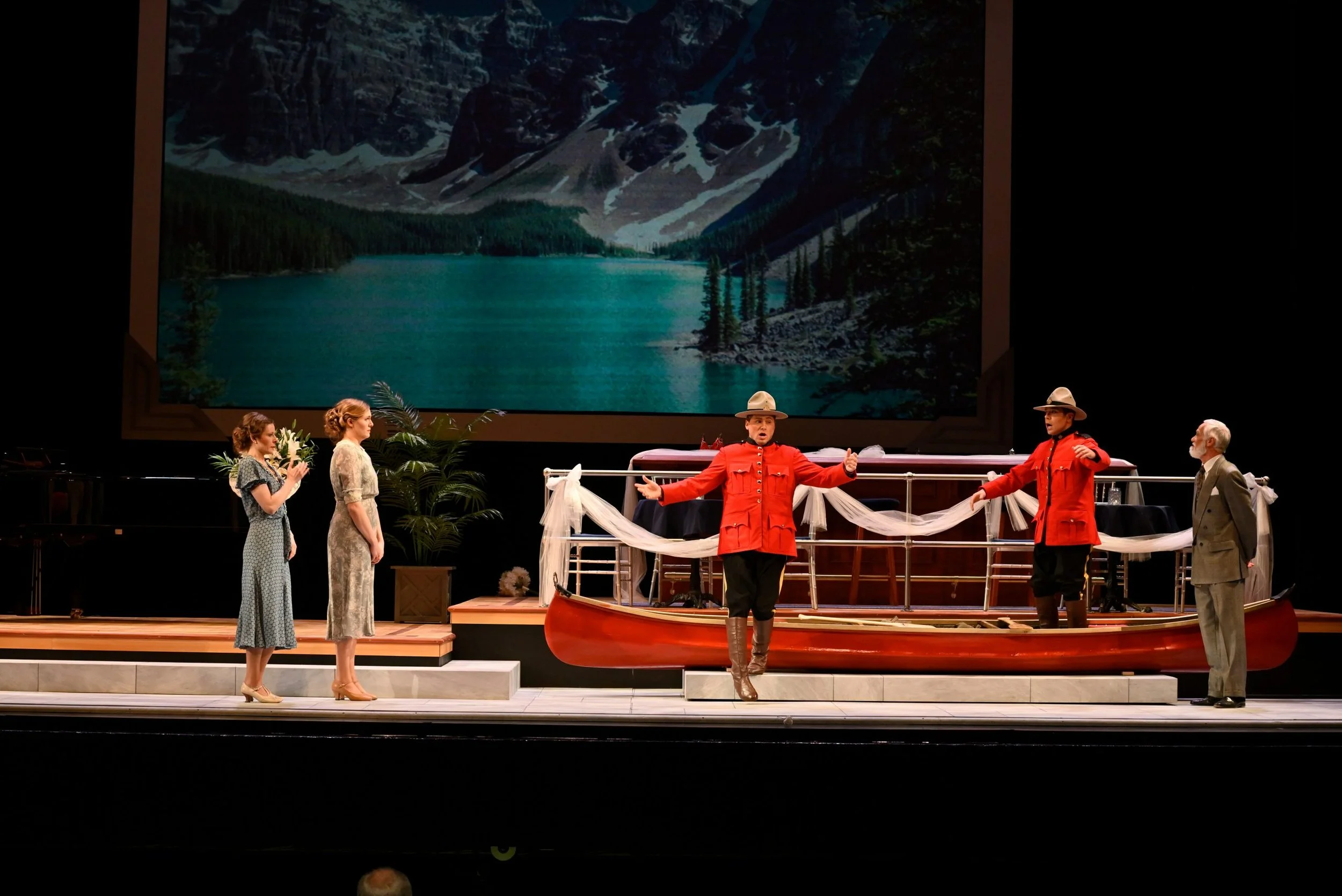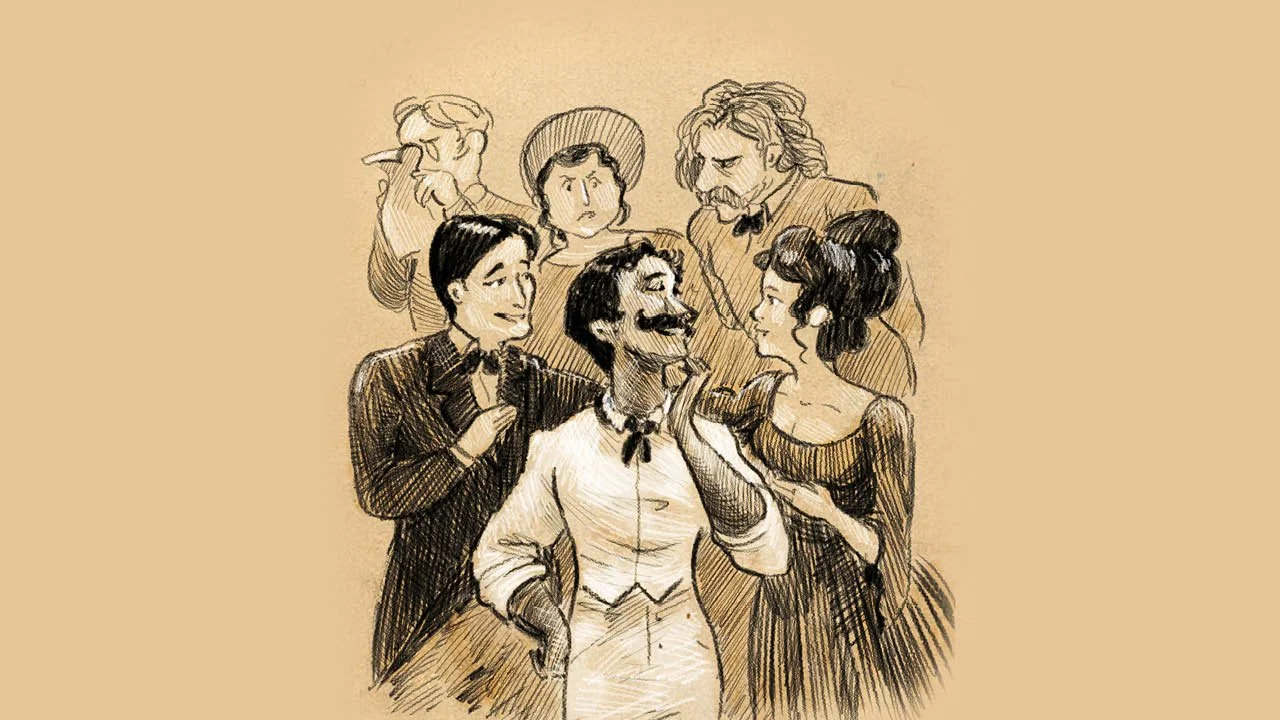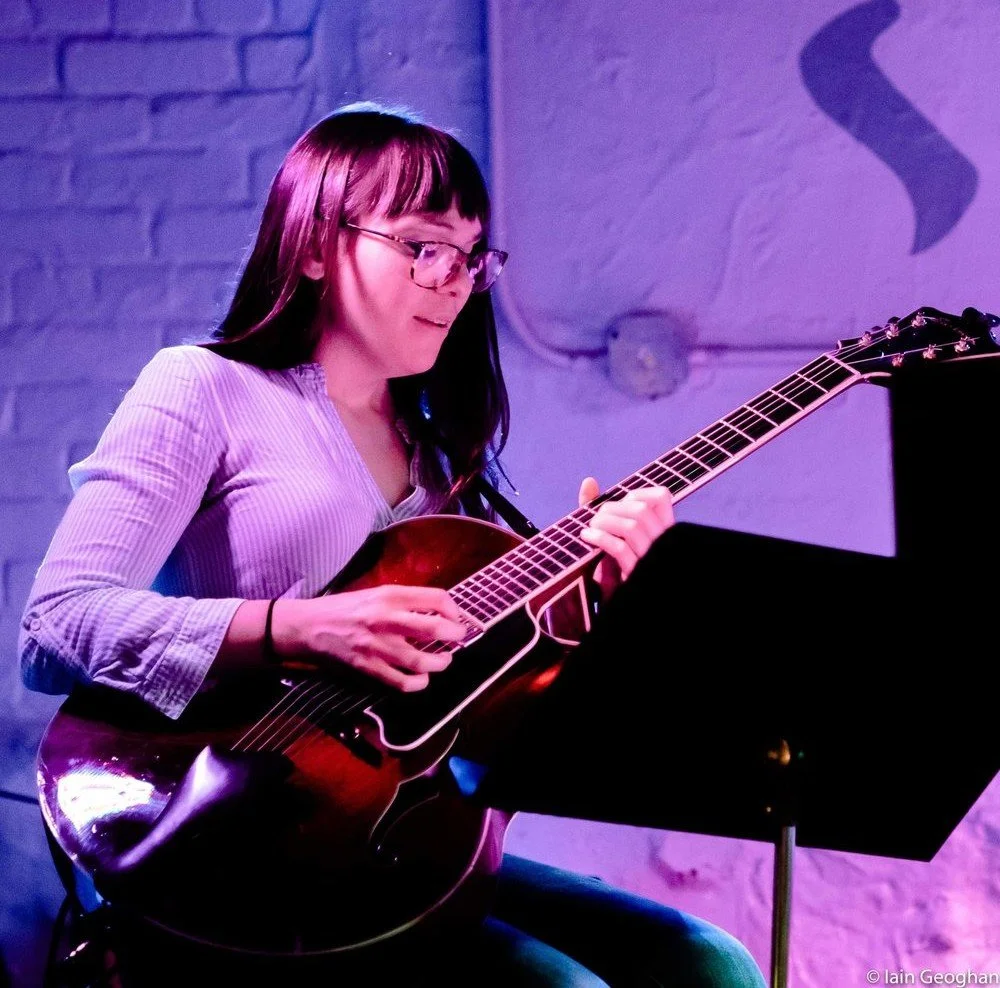Astrolabe Musik Theatre brings opera, dance, and German folk tale together in Into the Little Hill
Working with Idan Cohen and Leslie Dala, Heather Pawsey is finally ready to see composer George Benjamin’s reimagining of Pied Piper hit stage
Heather Pawsey stands in front of castmates in Into the Little Hill. Photo by Flick Harrison
Astrolabe Musik Theatre and SFU Woodward’s Cultural Programs present Into the Little Hill at SFU Goldcorp Centre at SFU Woodward’s on May 19 and 20
SOPRANO HEATHER PAWSEY has spent more than half of her career singing contemporary repertoire—even founding a company, Astrolabe Musik Theatre, devoted to new works. And so it was a surprise, 10 years ago, to discover the English composer George Benjamin for the first time, while watching classical-music channel Medici TV.
“Goosebumps were coming up on my arms and I said ‘Who is this composer?’” she tells Stir in a phone interview. “I had never heard anything so extraordinary and so otherworldly and ethereal and concentrated and intense and beautiful. And I was just so shaken—in the best way. And I thought: I absolutely need to sing this music. And people in Vancouver need to hear it.”
Pawsey would spend the next decade trying to bring Benjamin’s work to the stage here—a dream that finally comes to fruition this week with Astrolabe’s production of Benjamin’s chamber opera Into the Little Hill. It’s the first time a Canadian company has fully staged the 2006 work, a haunting single-act reimagining of the Pied Piper legend.
Based on the Middle Ages German folk tale, the show tells the story of a mysterious stranger who rids a town of its rats, only to make its children disappear when his promised payment is withheld. (Amid its unusual instrumentation is the bass flute that suggests the Piper.)
Pawsey was struck by how relevant the subject was to today.
“I read that libretto and I thought you could look at this through so many lenses,” Pawsey says. “You could say, ‘Who are the rats?’ Kids are labelled rats in the school yard, we label people rats in our cities and our countries—it is human nature and we still do this. And what happens when we do this? Who does the labelling, and who is labelled? What are we willing to do to get rid of anyone who is labelled? And inevitably there are consequences; what happens when we refuse to pay the piper?”
From the very beginning, Pawsey pictured dance as part of the production: in the work, two singers—a soprano (in this case, Pawsey) and a mezzo soprano (Emma Parkinson)—play all the singing roles. The show integrates three dancers (Juolin Lee, Daria Mikhaylyuk, and Hana Rutka). “I revere the way dancers can tell stories with their bodies the way we as opera singers do with words,” Pawsey says.
Enter opera director and choreographer Idan Cohen, lauded for the stylized dance touches he brought to Vancouver Opera’s Orfeo ed Euridice and known for the operatic influences of the dance works he creates for his Vancouver-based company Ne Sans Opera and Dance. The Israeli-born and -trained director seemed to have the perfect breadth to helm a multidisciplinary Into the Little Hill. Cohen has also collaborated on projects with conductor Leslie Dala, who is well-acquainted with Pawsey from Vancouver Opera (he directs the chorus that she sings in)—“and he was just as enthralled with the music of George Benjamin as I was,” she says. He came on board as music director and conductor. “There’s just this really amazing synergy between the three of us….It was just the right combination of things,” Pawsey says.
Photo by Flick Harrison.
Though Benjamin’s music is every bit as otherworldly and eerily beautiful as Pawsey describes it, the opera is beyond challenging for the two performers as they shift between roles—including men, women, a Narrator, and an ominous and genderless Stranger, who has no eyes, ears, or nose. Sometimes the pair even evoke an entire riled-up crowd. And that’s all while moving amid the three dancers.
“For the soprano part, I’m singing high Ds for pages…and rhythmically it’s very, very complex,” Pawsey explains.
The opening music is as striking as it gets in opera; “Kill them they bite/kill them they steal”/“Kill them they take bread take rice” are the crowd’s first, frenzied lines, set against chaotically stabbing strings.
The storytelling is closer to Brecht than what you might normally see in opera, Pawsey adds of British playwright Martin Crimp’s libretto. “We break from character a lot,” she says. “By taking the focus off the individual characters, it puts the focus on what they’re saying.”
In all, developing the one-act opera into a full fledged production has been years in the making, and Pawsey can’t quite believe that Astrolabe is finally ready to put it on stage—albeit a decade after she was first spellbound by Benjamin’s music.
“Back to 2014 I have emails with Les [Dala] about this project,” says Pawsey. “So it's been a dream for quite a while. And I have to pinch myself and say ‘We’re here rehearsing!’”


